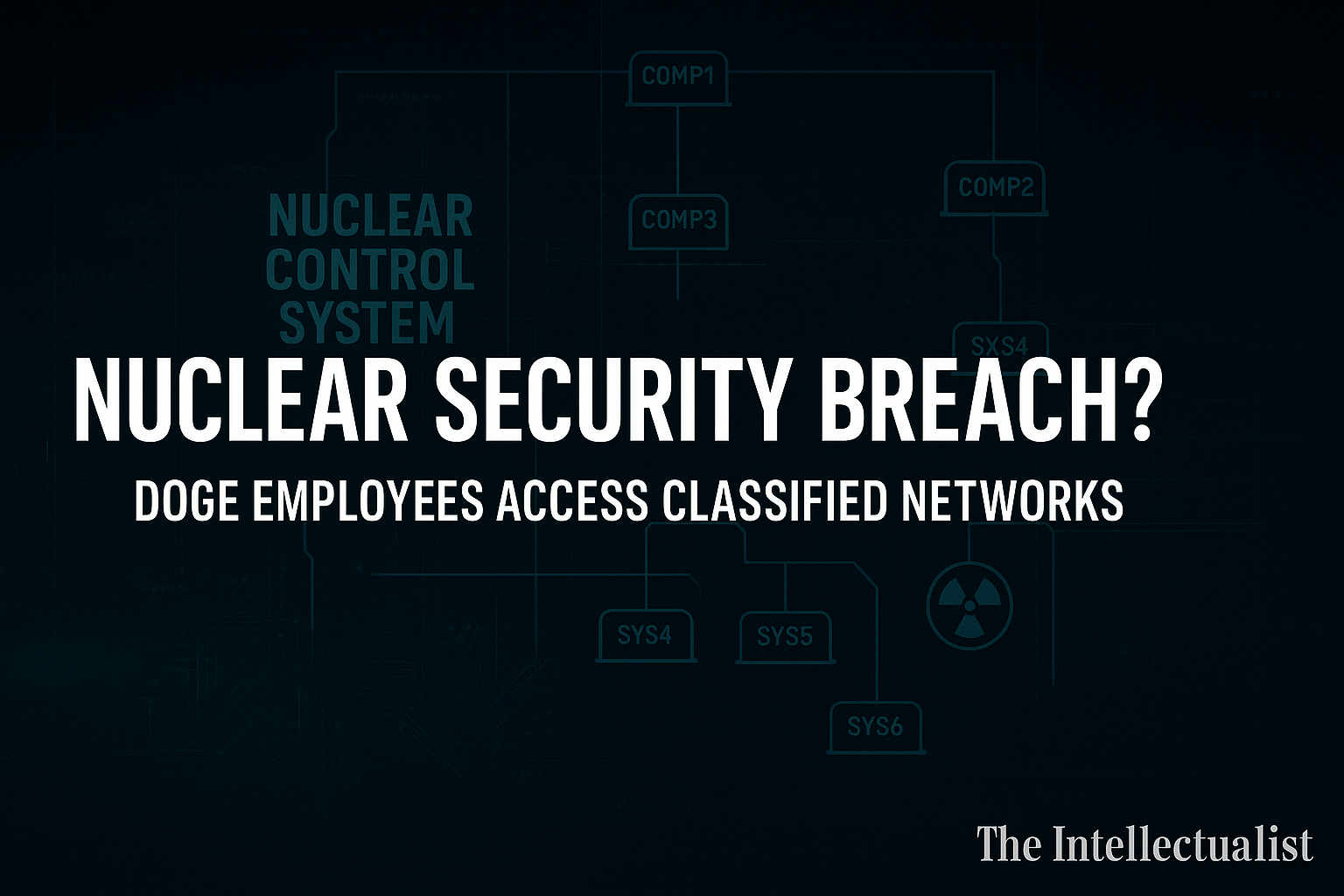DOGE Employees’ Access to Nuclear Networks Sparks National Security Alarms

The Department of Government Efficiency (DOGE), an agency formed during President Trump’s second term to streamline federal operations, is under intense scrutiny following revelations that two of its employees gained accounts on highly sensitive classified networks, including systems tied to the management of U.S. nuclear weapons, according to a report published by NPR.
Reports first surfaced late Sunday that two DOGE employees — Luke Farritor and Adam Ramada — obtained access credentials for the Department of Energy’s National Nuclear Security Administration (NNSA) Enterprise Secure Network (ESN) and the Department of Defense’s Secret Internet Protocol Router Network (SIPRNet). These systems handle some of the nation’s most sensitive nuclear weapons information, raising profound questions about the security protocols in place.
Critically, neither Farritor nor Ramada reportedly had prior experience handling classified information related to nuclear programs or national security, which has further amplified concerns from cybersecurity experts and lawmakers alike. The individuals reportedly left their positions in February, after spending several weeks embedded inside the Department of Energy (DOE).
The DOE, which oversees the NNSA, issued a formal statement denying any breach of protocol. According to agency officials, the two DOGE employees were vetted through standard onboarding procedures and left the department without accessing classified nuclear weapons data. A spokesperson added that no classified information was compromised and described their tenure as “temporary and routine.”
However, a growing chorus of whistleblowers and cybersecurity professionals is disputing the DOE’s assurances. A whistleblower, speaking under anonymity, claimed that DOGE staffers had pushed aggressively for elevated privileges and administrative-level access across sensitive systems, including within the National Labor Relations Board (NLRB) infrastructure. Network analysis reportedly detected abnormal traffic patterns, leading some internal investigators to fear possible unauthorized data access or exfiltration attempts.
Members of Congress, particularly House Democrats on the Oversight Committee, have demanded a full accounting of DOGE’s operations. They are seeking clarification on how individuals with no previous national security experience could have been granted any level of access to nuclear infrastructure systems. Letters sent to the Trump administration request internal communications, security vetting records, and data access logs related to DOGE’s activities at the DOE and the NNSA.
The controversy is politically explosive, arriving at a time when cybersecurity has become an increasingly prominent flashpoint in American politics. Already, Trump’s creation of DOGE had raised eyebrows among critics, who accused the new agency of serving more as a vehicle for political patronage than a legitimate governance reform. The current revelations risk deepening public skepticism about the administration’s handling of sensitive national security matters.
Complicating matters further, the role of Elon Musk in influencing DOGE’s creation and culture has been scrutinized. Musk, who has championed aggressive reform and rapid digital transformation in government systems, was reportedly an early architect behind the Department of Government Efficiency model, although he holds no formal government position. His connections to DOGE and its hiring pipelines — often drawing from the tech industry rather than traditional federal recruiting channels — have come under renewed investigation.
National security experts warn that the situation could have long-term consequences. “Any time you allow individuals without proper clearances or relevant experience near classified nuclear data systems, you introduce significant risks — not just technical, but geopolitical,” said Laura Chen, a former senior cybersecurity adviser at the NSA.
The Biden administration, had it remained in office, was reportedly conducting a review of classified system access protocols, but that effort was shelved when Trump returned to power in January 2025. Critics argue that the DOGE scandal demonstrates a critical vulnerability in the current system — one that adversaries could exploit if not urgently addressed.
For now, no official evidence has surfaced that nuclear secrets were stolen, modified, or leaked. But the political and security ramifications of DOGE’s entanglement with the nation’s most sensitive networks are likely to reverberate for months, if not years.
As investigations ramp up on Capitol Hill and within watchdog agencies, the larger question looms: How secure are America’s nuclear command and control systems — and how easily could loyalty, ideology, or incompetence compromise them?

